BULGARIA
History

History

Cities in BULGARIA
| Sofia |
History
Prehistory and Antiquity
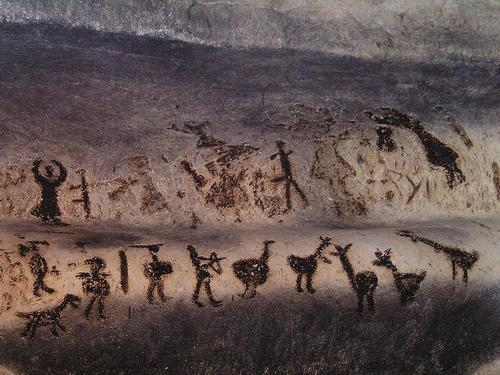 Magura Cave Drawings BulgariaPhoto: Nk in the public domain
Magura Cave Drawings BulgariaPhoto: Nk in the public domain
Archaeological finds have shown that people must have lived in Bulgaria 50,000 to 100,000 years ago. They lived in caves in the lower parts of Bulgaria. Remains of thousands of years old settlements have also been found. The people of that time lived from hunting, fishing, and gathering herbs and carrots.
Bulgaria was inhabited in ancient times by Thracians, who in the 1st century BC. were subdued by the Romans. From ca.300 B.C. they had mixed with the invaded Celts. In general it can be said that the Romans never succeeded in conquering the entire area around the Black Sea (Pontus Euxinus). Under Emperor Claudius, the Romans advanced towards the Danube, but there stopped their conquests. The area between the Danube and the Balkan Mountains became the Roman province of Moesia. The headquarters of the 11th legion was located in the easternmost Danube city of Silistra (Durostorum).
Middle Ages; First and Second Czar Empire
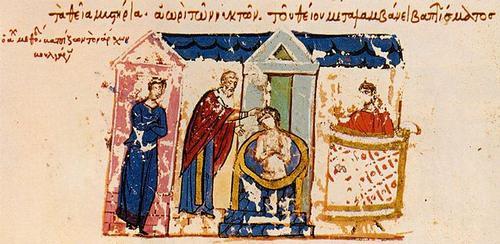 Baptism of Boris I BulgariaPhoto: Public domain
Baptism of Boris I BulgariaPhoto: Public domain
After the conquest by Claudius, Thrace developed well, especially in the trading cities such as Ulpia Serdina (now: the capital Sofia), Trimontium (now: Plovdiv) and Augusta Traiana (Stara Zagora). In the countryside, the Romans had a harder time with constant attacks on their troops. In 476 the Western Roman Empire fell and the Middle Ages started around 1500. From the 3rd century, the time of the great migrations, the area west of the Black Sea was invaded by the Huns and the Visigoths. After these peoples, Slavic tribes crossed the Danube around the 5th century. Ultimately, the Thracian culture was completely absorbed into the Slavic culture.
Between the 5th and 7th centuries, the Bulgars, Turko-Mongol nomadic tribes, entered Bulgaria. This naturally resulted in a lot of conflict, both among themselves and with the Slavic tribes. However, in 681 most of the chieftains rallied behind King Kan Asparuh and the first Bulgarian Tsar Empire began, which would last until 1018. The most important tsar at the time was Boris I, who reigned until 889. He introduced the Slavic (Cyrillic) alphabet and Christianity was accepted as the state religion. He was succeeded by Tsar Simeon the Great, who significantly expanded the territory of Bulgaria and in the 10th century the empire covered large parts of the former Yugoslavia, Albania and northern Greece. The first capital was Pliska, succeeded by Preslav in 893. Under Tsar Petar there was a popular uprising, among other things as a result of the strong feudal system that had to keep the common people under control.
This marked the beginning of the end of the First Czar Empire, which would be divided into an eastern and western part. Macedonia became an independent empire under Tsar Samuel, and the eastern part became part of Byzantium in 972. In 1018, under the Byzantine Emperor Basil II, Bulgaria came under Byzantine rule. One after another uprising followed, but it was not until 1185 that the Byzantines managed to get rid of them. However, a fervently desired Greater Bulgaria was never there again, the surrounding empires were too strong for that.
In 1187 the second Bulgarian empire was proclaimed with Târnovo as its capital. Under Tsar Kalojan they managed to recapture some areas from the Byzantines. The Byzantines reclaimed their territories but lost the battle of Adrianopolis in 1205. A short time later, the celebrated Kalojan was murdered by disaffected boyars (aristocratic landowners). Also during the reign of Tsar Ivan Assen II, the Bulgarian territory expanded and trade and culture flourished. After Ivan, however, the prosperity soon ended again due to mutual disputes between boyars and peasants, causing the second Bulgarian empire to decline. From 1323 to 1396 a revival followed, but the subsequent Turkish rule caused dark times. In the mid-14th century, the Bulgarians already suffered a lot from attacks by the Mongols and at the end of the 14th century, the whole of Bulgaria was conquered by the Ottoman Empire, among other things after the lost battle of Nikopolis.
Turkish rule
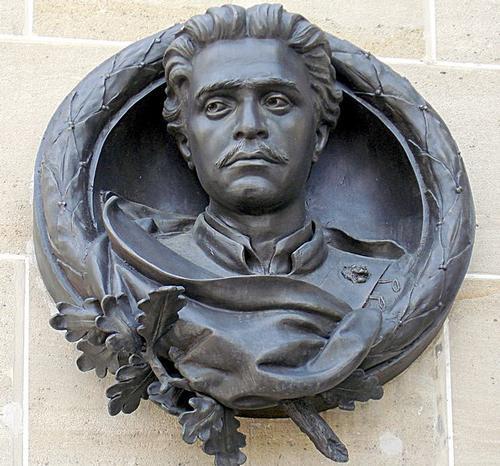 Levski BulgariaPhoto: Public domain
Levski BulgariaPhoto: Public domain
Bulgaria was initially ruled by a stadtholder, but since the 16th century the provincial administrators, the pashas, reigned supreme and exercised a cruel and corrupt regime. Besides the severe oppression by the Turks, the population suffered from the abuse of power by the Hellenized high clergy. Developments elsewhere in Europe under the influence of the Renaissance completely ignored Bulgaria and people remained stuck in the Middle Ages, as it were. The Enlightenment in the 18th century and the industrial revolution also passed Bulgaria by. Most of the nobility converted to Islam, only the common people remained loyal to the Greek-Byzantine faith despite persecution and oppression.
Bulgarian nationalism did not develop properly until the 19th century. In the 1930s, revolutionary committees sprang up everywhere and eventually merged into the Internal Revolutionary Organization (BRO) under the leadership of Vasil Kântschew (nickname: Levski), who was hanged by the Turks in 1873. On April 20, 1876, a national uprising against the Turks resulted in horrific Turkish reprisals. This uprising took the lives of tens of thousands of men, women and children. The Western powers protested vehemently against the massacre but did not intervene further in the struggle for economic reasons. Only Russia came to the rescue of the Bulgarians, mainly to increase their military and political influence south of Crimea.
After a three-year struggle, at the peace of San Stefano on March 3, 1878, the Turks were more or less forced to agree to the founding of Greater Bulgaria over an area from the Danube to the Aegean Sea. However, Germany, England and Austria-Hungary did not see much of this and threatened a new war at the Congress of Berlin (1878). This resulted in a small principality of Bulgaria, which would remain indebted to the Turks. The first monarch of the new Bulgaria became the Prussian Prince Alexander von Battenberg. He soon went to war with Serbia and Turkey after attempting to form a single union with Eastern Romania. Battenberg won the battle and the outcome was also internationally accepted (Peace of Bucharest). In 1887, Ferdinand von Saxe-Coburg ascended the throne and began to fully annex Eastern Romania and improve relations with Russia. In 1908 he proclaimed himself Tsar of Bulgaria.
First and Second World War
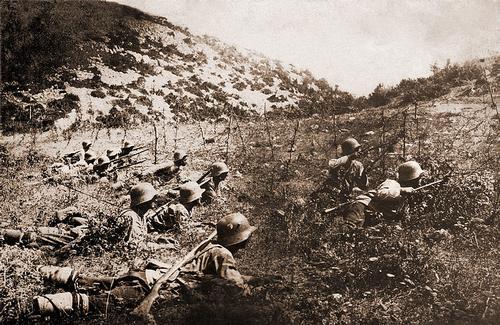 Bulgarian soldiers World War IPhoto: Public domain
Bulgarian soldiers World War IPhoto: Public domain
Despite two Balkan wars in 1912 and 1913, it was possible to establish a connection with the Aegean Sea. After Russia sided with Serbia, Bulgaria sought support from Austria, which would drag the country into World War I. After the Serbian assassination of the Austrian heir to the throne Frans Ferdinand in 1914, Austria invaded Serbia, aided by the Bulgars. Bulgaria had joined Germany and Austria-Hungary and faced Russia, England and France. After the conquest of Serbia, Macedonia was also conquered. In September 1918, Ferdinand gave up when French troops broke through the Bulgarian lines from Greece.
After the war, Bulgaria lost Macedonia to Yugoslavia and a part of Greece, which meant that the connection with the Aegean Sea was very short-lived (27 October 1919; Peace of Neuilly). The First World War had serious consequences for Bulgaria. The million-strong army had to be demobilized, the hard-hit industry had to be rebuilt and heavy reparations were imposed on Bulgaria on other countries. Inspired by the Russian revolution, the Communist Party of Bulgaria (CPB) was founded in 1919. Until 1923 Alexander Stamboeliski, the leader of the Agrarian Union, was the strong man in Bulgaria. He tried to combat hunger and poverty among the population by abolishing large landholdings and by expropriating companies. These agrarian reforms naturally earned him many opponents who killed him in June 1923.
After Stambuliski, Alexander Tsankov came to power, a fierce anti-communist with fascist traits. The communists and the Agrarian Union meanwhile illegally formed the United Front. In September 1923 they seized power with the help of Russia, but it was suppressed with much bloodshed. In 1925 an attack on Boris III followed, leading to a time of "white terror" with arrests and executions with many, often innocent victims. From 1935, King Boris III became directly involved in the situation with the help of the army. For example, political parties were banned and the constitution made inoperative.
Moreover, he was deeply impressed by the successes of Adolf Hitler in Germany and it was therefore not surprising that Bulgaria joined the Vienna Pact in 1941. This meant for the until then neutral Bulgaria that it was directly involved in the war. German forces soon moved through Bulgaria to Greece, after which England and the United States declared war on Bulgaria. However, Bulgaria did not participate in the military operations. In the meantime, Social Democrats, Republicans and Communists had united in the Patriotic Front (VF), which carried out actions of resistance against the pro-German government. This government refused to assist the Germans with the attack on Russia. Hitler was very upset about this after a visit of Hitler to Bulgaria to King Boris III, who died shortly afterwards under very mysterious circumstances. The rule was taken over by his six-year-old son Simeon under a three-man regency. The VF meanwhile became the National Liberation Army in close cooperation with the Russians. After the German defeat in 1943 at Stalingrad, the actions of the partisans led by Georgi Dimitrov became more frequent. After negotiations with the Allies in August 1944, a pro-Western government was soon installed in Sofia
Russian rule
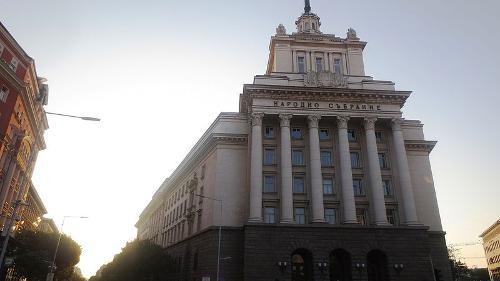 Former Bulgarian Communist Party headquartersPhoto: Bloervedt CC 4.0 International no changes made
Former Bulgarian Communist Party headquartersPhoto: Bloervedt CC 4.0 International no changes made
Yet Bulgaria's future would soon look very different. The Russians had reached the Danube through the war after conquering Romania from the Germans. On 5 September 1944, the Russians unexpectedly declared war on the Bulgarians, immediately entered the country and overthrew both the royal family and the newly appointed cabinet. A transitional government was installed, headed by Kimon Georgiev, who immediately declared war on Germany.
Compared to other Eastern European countries that had been allied with Germany, the position of the communists in Bulgaria was strong. In the Patriotic Front they had a suitable body for the development of their power and were able to profit from strong pro-Russian feelings among the population. Georgiev formed a government, in which the communists obtained the Ministry of the Interior. In six months, more than 2000 people were executed as part of a large-scale 'purge', including the three regents (including Prime Minister Filov and the Minister of War, Michov). Little King Simeon was still able to flee to Spain and only came back into the picture in 2001!
Bulgaria came out of the Second World War relatively unscathed because it did not have to give up territory. Bulgaria did have to pay $ 75 million in reparations to Greece and Yugoslavia. However, it would take until September 15, 1946 before the republic was proclaimed after a referendum in which most Bulgarians voted against the monarchy. After the People's Republic was proclaimed, Georgi Dimitrov became party leader and head of state. He was also Chairman of the Council of Ministers and First Secretary of the Communist Party. The Council of Ministers consisted entirely of members of the National Front. After the war, this party obtained 70% of the vote in the first elections. The new people's government, also predominantly communist, adopted a new constitution in December 1947 on the model of that of the Soviet Union.
From that time on, opposition was almost impossible and opposition leader Nikola Petkov was soon arrested. In both the economic and political plans, Dimitrov was “accompanied” by Zdanov, the right-hand man of the Russian dictator Stalin. Bulgaria followed the policy prescribed for all popular democracies, but developed a remarkable zeal especially in the collectivization of agriculture. Even after Dimitrov's death in 1950, political mock trials against the anti-communists dominated. This only came to an end when Stalin died in 1953. There were even people who were rehabilitated! After the split between Stalin and Tito of Yugoslavia, who was portrayed as a “traitor to communist solidarity”, Bulgaria would become one of Tito's fiercest opponents.
The difficulties with Turkey were of a very different nature. After the proclamation of the People's Republic of Bulgaria, about 150,000 ethnic Turks left Bulgaria. They feared persecution because of their faith. In 1951 Turkey closed the border with Bulgaria. It was not until 1968 that an emigration treaty was concluded, after which thousands and thousands of Turks left the country. Also in 1968, Bulgaria took part with a small group of soldiers in the Russian invasion of rebellious Czechoslovakia. In the 1960s and 1970s, the communist party grew stronger and determined both domestic and foreign policy. However, this never happened after extensive consultations with Moscow, and Bulgaria was therefore the most fanatical ally of the Soviet Union alongside East Germany.
Period Zhivkov
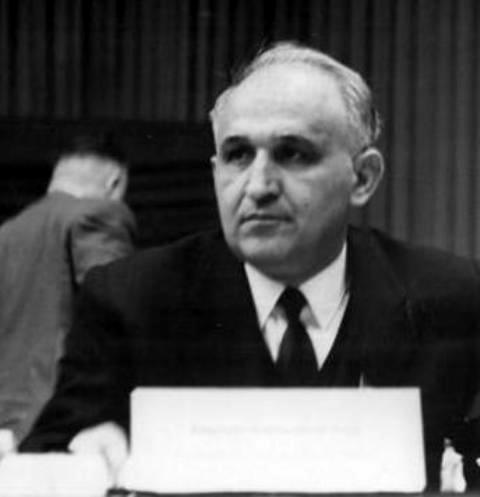 Zhikov BulgariaPhoto: Schaar, Helmut CC 3.0 de no changes made
Zhikov BulgariaPhoto: Schaar, Helmut CC 3.0 de no changes made
The most important man at this time was Tudor Zhivkov, secretary-general of the Communist Party since 1954 and prime minister since 1962. After a constitutional amendment in 1971, he became chairman of the newly formed State Council. From that time on, Zhivkov assumed all power, and his friends or relatives sat at almost all important posts in the country, without parliament intervening. Relations with the West were seriously disrupted after November 1982, after Mehmet Ali Agca, the Turk who attacked the Pope in 1981, revealed that he had acted on behalf of the Bulgarian secret service. A Bulgarian suspect in Italy was released in 1986 for lack of evidence.
At the end of 1984, Bulgaria started a campaign to "bulgarize" the Turkish minority in the country, about 10% of the total population. Ethnic Turks and Pomaks (about 250,000 descendants of the Bulgars converted to Islam during Ottoman rule) were forced to take Slavic names. Hundreds of reluctant Turks were convicted or exiled. At the Balkan Conference in Belgrade (1988), Bulgaria was also criticized for the treatment of Macedonians, who were not recognized as an official minority either. The bulgarization campaign against ethnic Turks was launched in Dec. 1989 ceased operations. Shortly afterwards, several tens of thousands of Muslim Bulgarians who had emigrated to Turkey returned.
Only under Gorbachev's rule in the Soviet Union with its glasnost and perestroika did changes come. In 1986, a number of ministries were dissolved or merged, and a year later Bulgaria initiated far-reaching economic reforms along the lines of the “perestroika” in the Soviet Union. In 1987 there was also a little more freedom of the press. The press immediately “took advantage” of this by denouncing corruption and the many economic and social injustices. It was therefore not surprising that freedom of the press was already restricted after a year. All reformers were also taken out of their sails and even Zhivkov's intended successor, Aleksandrov, was sent away. However, developments in Eastern Europe succeeded each other at such a rapid pace that the communists in Bulgaria could not stop. Opposition was suddenly allowed again and it could never be long before 78-year-old Zhivkov would have to leave the field. That would happen on November 10, 1989 after 35 years in power. The reason for this was a scattered demonstration by the environmental organization Eco-Glasnost on November 3, 1989. Within the central committee there was so much disagreement about this that Zhivkov lost his grip on the committee and “voluntarily” resigned, along with all his relatives and faithful people.
New future
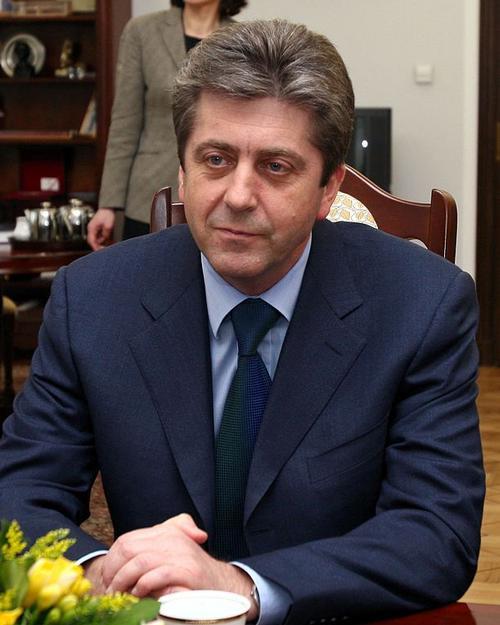 Georgi Parvanov BulgariaPhoto: The Chancellery of the Senate of the Republic of Poland CC 3.0 no changes made
Georgi Parvanov BulgariaPhoto: The Chancellery of the Senate of the Republic of Poland CC 3.0 no changes made
The committee and parliament then took all kinds of measures to appease the opposition movement. The Politburo, the government and other power bodies were purged of Zhivkov's supporters in late 1989. On June 18, 1990, the first free elections in 44 years were held, with the Bulgarian Socialist Party (BSP) of the former communists as a surprise winner. In rural areas in particular, large numbers of people voted for the BSP. Main opposition party became the Union of Democratic Forces (SDS).
Despite a majority in parliament, economic and social reforms did not really get off the ground. among other things due to differences of opinion and a stream of revelations about the communist period. The BSP appointed Petar Mladenov as interim president, the former chairman of the state councilor. However, his rule was short-lived because, according to the anti-communists, the economic and political changes progressed far too slowly. The socialist headquarters was set on fire and Mladenov then wanted to deploy the army to quell the riots. However, he signed his political death warrant and in August 1990 a new interim president was elected who was acceptable to all parties: the philosopher Zheljoe Zhelev.
The 1991 parliamentary elections were won by the SDS with the BSP as the largest opposition party. The minority government was headed by Flip Dimitrov. He tried to implement revolutionary economic reforms and went on a witch hunt for former communists. This policy resulted in the contradictions between the BSP and the SDS flaring up again. In November 1992, former leader Zhivkov was sentenced to seven years in prison and a purge of the BSP followed. The government was replaced in October 1992 by a government of non-party ministers headed by Prime Minister Lyuben Berov. Although intended as temporary, the Berov government stayed together until September 1994, as neither the BSP nor the SDS wanted to call new elections. The parties represented two political extremes that stood in the way of consensus and perpetuated the economic and moral crisis in which the country found itself after nearly half a century of communism.
From September to December 1994, a business cabinet under Reneta Indzhova took office to bridge the period up to the elections. Bulgaria sought further affiliation with the West in 1994, but also strengthened traditional ties with Moscow, including in the economic field. The BSP won the elections again in early 1995 under the leadership of Zjan Videnov. He worked hard to restore the power of the old communist elite and was therefore called on several times by President Zhelev. However, corruption and fraud were rampant as the population continued to become impoverished. The 1996 presidential elections were won by SDS candidate Petur Stojanov and were the sign for the BSP to demand the resignation of its own leader Videnov.
The people of Sofia took to the streets demanding early elections to be held on April 20, 1997. These elections were won by a large majority by the United Democratic Force (VDK), a combination of SDS and Volksunie. The new Prime Minister Ivan Kostov was faced with the arduous task of reviving the collapsed economy and finally putting an end to the communist past. The June 2001 elections were surprisingly won by the party of former King Simeon II, the National Movement for Simeon II. He succeeded Ivan Kostov. The victory became possible because the population had also turned away from the anti-communists 12 years after the fall of communism. They, too, had failed to counter the continuing social impoverishment among broad sections of the population. It is unlikely that the monarchy will ever return; According to a poll, 82% of voters wanted Bulgaria to remain a republic.
In August, Simeon (citizen name: Simeon Saxcoburggotski) announced sweeping reforms to get the country out of the doldrums. A radical change in the tax system, a reduction in bureaucracy and an increase in the minimum wage were some of the measures to be taken. In November, after the second round of the presidential election, the socialist Georgi Parvanov became Bulgaria's new president. He got 55.8% of the vote and incumbent pro-Western President Petar Stojanov had to settle for 44.2%. Bulgaria became a member of NATO in April 2004 under Prime Minister Saxe-Coburg, and negotiations on EU accession were technically concluded on 15 June 2004. On April 25, 2005, President Parvanov and Prime Minister Saxe-Coburg signed the EU Accession Treaty in Luxembourg. Subsequently, on May 11, 2005, the Bulgarian Parliament overwhelmingly ratified the Treaty.
Bulgarian President Georgi Parvanov was re-elected as the first head of state in the Balkan country in October 2006 after the fall of communism in 1989. He defeated his ultra-nationalist opponent Volen Siderov in the second round of the presidential election.
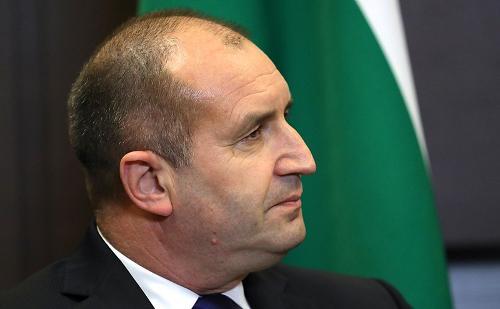
Rumen Radev, BulgariaPhoto: Kremlin.ru CC4.0 International no changes made
In January 2007 Bulgaria becomes a member of the European Union. In the years since, Bulgaria has been called to account for the lack of progress in the fight against corruption. In July 2009, the right wing wins elections in Bulgaria led by Borissov the mayor of Sofia. In October 2011, fellow party member Rosen Plevneliev won the presidential election. In February 2013 Borissov resigned after riots. In May 2013 a stalemate arose, there was no convincing winner and the two largest parties asked the technocrat Delyan Peevski to form a government. In January 2014, Bulgarians will be allowed to settle freely within the EU, including in the countries of the EU that originally blocked it. In November 2014, Borisov becomes prime minister again in a center-right coalition. In January 2015, Bulgaria erected a large fence along the border with Turkey to stop immigrants. In November 2016, the socialist Rumen Radev wins the presidential election. Parliament overturned a presidential veto on anti-corruption laws in January 2018, paving the way for the creation of a special unit to tackle high-level abuse.
A former defence minister and an ally of President Radev, General Yanev formed an interim government in May 2021 to oversee elections slated for July.This followed inconclusive elections in April, and the resignation of long-serving conservative Prime Minister Boyko Borisov. He had been under fire over his handling of the Covid-19 pandemic and failure to tackle persistent corruption. In december 2021 Kiril Petkov became prime minister. President Rumen Radev appointed the caretaker government with Galab Donev as Prime Minister after the coalition government led by Kiril Petkov was ousted by a no-confidence vote in June 2022, and the parliamentary parties failed to form a new cabinet.
Sources
Berg, H. van den / Reis-handboek voor Bulgarije
Elmar
Detrez, R. / Bulgarije: mensen, politiek, economie, cultuur, milieu
Koninklijk Instituut voor de Tropen
Resnick, A. / Bulgaria
Childrens Press
CIA - World Factbook
BBC - Country Profiles
Copyright: Team The World of Info